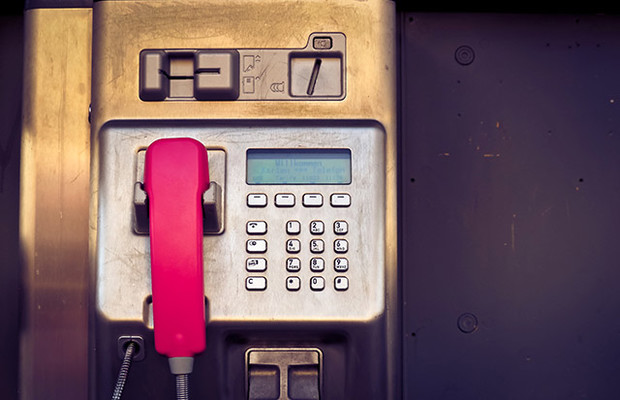It goes without saying that before recording any call, it is essential to get permission from the person you’re speaking with, be it an interviewee, colleague or friend, but journalists often need to record phone interviews for transcription, a podcast episode, or even for proof of what’s been said.
There are countless ways to capture a call, but which one is best for you?
Of course, putting your phone on loudspeaker and using another device to record your conversation is one way, but this can be fiddly and the audio will be pretty unusable if you’re planning to do anything with it.
Here at Journalism.co.uk, we prefer using Call Recorder for Skype, for recording Skype calls on the computer with a simple click of a button. Audio recordings can then be listened back to for key quotations, or opened in editing software to produce our weekly podcast.
However, if you’re out of the office and need to capture a call on the go, there are some useful apps available on Google Play that will do the job. We’ve already told you a few of our recommendations including TapeACall and Automatic Call Recorder Pro, so here are a few more for you to try out.
Just give them a go now, so you’re confident to use them when you need to. Just remember that call recording apps cannot record Wifi, VOIP, SIP or internet calls, and having multiple call recording apps on your device might interfere with each other – so pick your favourite.
Call Recorder – ACR
Start by giving the app access to your contacts and microphone, and confirming that call recording is legal in your country.
Call Recorder – ACR will automatically become active, ready to record each call your phone receives or makes. Once a call has ended, your recording will be listed in the app with any other phone calls you have captured, either by date or contact order.
From there, simply select the call you’d like to use, and tap on the dropdown menu to playback, or quickly share the wav file via WhatsApp, email or Facebook Messenger. You can also add a note to the recording – useful if your interviewee has said something particularly striking halfway through your chat.

Finished your interview? Easily disable the app from recording calls on the app’s homepage. You’ll have a notification at the top of your phone screen telling you whether the app is enabled or not if you’re unsure, but you can turn this off in the app’s settings.
Upgrade the app for £2.49 for the ability to record manually choosing who you do and don’t record, the option to record a phone call from any point in the conversation you choose, edit the audio, and link your recordings with a Dropbox account.
Total Recall
Again, once you’ve downloaded Total Recall, it will need you to give it access to your contacts, files and your phone's microphone.
Like Call Recorder – ACR, as soon as you receive a call, the app will activate and start recording, even if you haven’t got it open. You can set it to delay though, setting up to 15 seconds of delay for outgoing and incoming calls if you like.
A pop-up box will appear on you’re phone’s screen, giving you the option to pause the recording or stop it as you like – useful if your interviewee goes off topic and you’re looking to preserve your phone’s storage space.

When the call is completed, open Total Recall and listen back to it by tapping on the play icon. Your recordings will be listed in the order they have been captured, but you can filter them by tapping on the ‘In’ and ‘Out’ tabs at the top. You can also rename your recordings if you wish, useful for searching for them within the app later on.
Files, which can be recorded in wav, mp3, sac or amr formats, can be shared to a configured Gmail account or WhatsApp contact, or even sent to Dropbox or Soundcloud. We’d alway recommend sharing files, even to yourself, so you have a copy of them if you have to uninstall the app or delete the recordings in the future.
Upgrade for £1 a month or £4 a year for call record filtering, more audio formats, an auto send option, and Google Drive sync.
Call Recorder
Call Recorder is another simple-to-use app, where journalists simply download it and make phone calls like normal. The app works in the background to record your call, and automatically saves as an mp3 file, but this can be changed to a wav file if needed.
Open the app after your interview, click on the recording, which will be titled with the name of the person that called you, or their phone number, and share to WhatsApp, email or even social media.

With Call Recorder, one benefit is that you can add contacts to your ‘Exclude List’, so conversations with them won’t be automatically recorded, and you can even set the app to only record conversations with specific numbers.
Another is that you can edit the audio by trimming it within the app and save it as a new file, without needing to pay extra.
Those looking for more features should upgrade to the Pro version at £4.49, which removes all the on-screen ads and allows you to sync your files to Dropbox.
Free daily newsletter
If you like our news and feature articles, you can sign up to receive our free daily (Mon-Fri) email newsletter (mobile friendly).
Related articles
- Newrewired spotlight | Chris Stone: 'The news industry has a lot to learn from podcast creators'
- Gear, apps and workflows: Rob Layton's complete mobile journalism checklist
- Daniel McLaughlin, Reach plc podcast editor, on growing a community show
- 40 media podcasts that should be on every journalist's radar in 2025
- How The Economist reached young audiences through new formats and brand marketing












